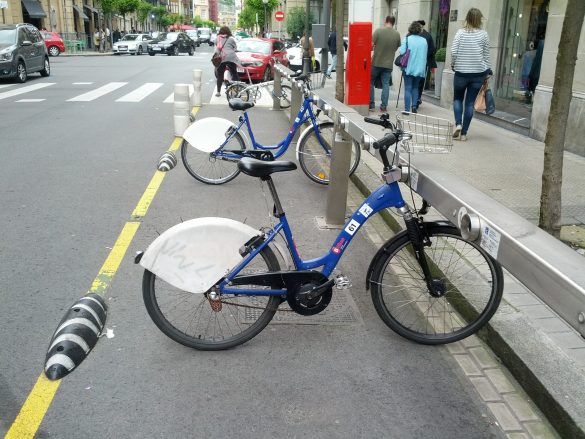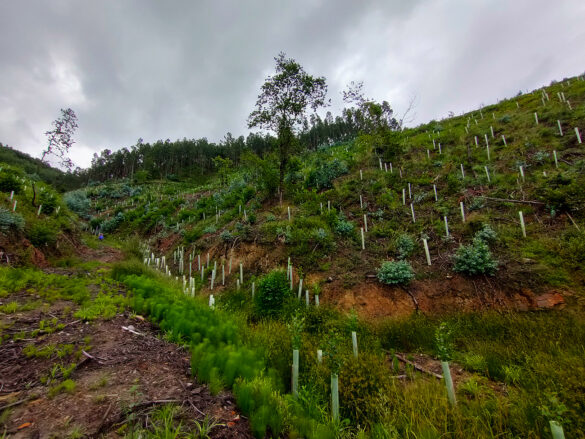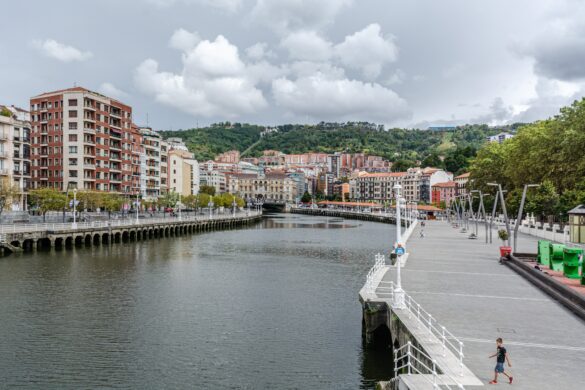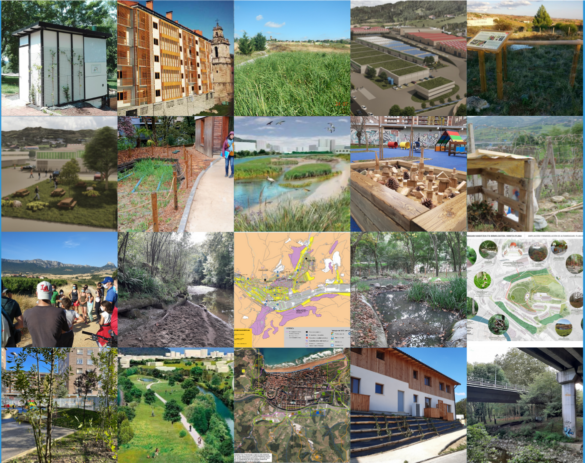The Basque Country is a densely populated small region of 7,000 square metres, home to over 2 million inhabitants. In 2015, the UN introduced 17 Sustainable Development Goals (SDGs) to pick up where the Millennium Development Goals left off in advancing societal, economic and environmental progress across the globe. The importance of action across all strata of society and levels of government was highlighted when the goals were approved – sub-national governments are fundamental to realising the SDGs. To align the Basque Country’s public policies to the universal Agenda, and make visible it’s contribution to the implementation and achievement of the SDGs.
Basque Country 2030 is an Agenda, launched in 2018, which covers the period 2017-2020 and aligns with the goals and targets of the 17 SDGs. Agenda 2030 was created to embody how the SDGs can be implemented in the Basque Country. It acknowledges that the international agenda of sustainable human development is most effective when translated into the local context and implemented closest to citizens. But it also it focuses on issues of common interest, ignoring any merely domestic issues which are of no global interest. The process was initiated at the beginning of 2016 and was later confirmed in the Lehendakari’s (President’s) own investiture speech before being formally launched in April 2018.
There are 15 goals in the Basque Country 2030 Agenda, all aligned to the SDGs. These include ending poverty and hunger, as well as gender equality, access to water, sustainable energy, urgent action to combat climate change and sustainable ocean and land management. It is intended that by basing 2030 Agenda on the SDGs, public policies can be improved and priorities can be set for the local context, whilst at the same contributing solutions to sustainable human development.
The General Secretariat to oversee the progress of Agenda 2030 is in the President’s Office, but the framework is participatory, meaning that all social, economic and cultural agents in each Government area are responsible for achieving goals and targets. Ultimately the Agenda will stretch to make all of Basque society stakeholders in the delivery of the targets – civil society, public sphere, private sector, academia, etc. Agenda 2030 aims to be:
- Integrating – covering economic, social and environmental sustainability
- Transversal – covering all areas of public policy
- Time-based – runs to 2030, but initiatives are divided into 4 year blocks, coinciding with legislative period.
- Specific – clear focus on making commitments on issues it is possible to take action against
- Clear – simple and user-friendly
- Participatory – open to multi-level and multi-agent participation
- Adaptable – with monitoring and assessment, agenda can be adapted if things aren’t working – the agenda is being continuously improved.
- International – commitment by Basque government to achieve the international SDG goals.
To align Agenda 2030 with all existing activities in the Basque Country is a huge undertaking. So the strategy is framed to help shift to the new way of working. Agenda 2030 has 5 spheres of importance – People, planet, prosperity, peace, and partnership. It also has 15 country objectives, 15 strategic plans, 54 sectoral plans, 28 legislative initiatives, 175 commitments, 650 initiatives and 100 indicators. Agenda 2030 does not specify, but rather helps to prioritise and improve public policies. It provides a framework for collaboration on a common subject and encourages internal and international partnerships to be forged and strengthened.
In 2017, 100 significant actions were taken against the 100 targets. 43 of the 93 commitments have been acted upon and 56 planning instruments were operational. Highlights of the significant actions include:
- Vulnerability Assessment of Basque Municipalities to Climate Change, with specific information for each municipality regarding vulnerability to heat islands, flooding, rising sea level and drought in the agricultural sector.
- Training and innovation projects for entrepreneurship, technological and scientific education at 117 publicly-funded centres in secondary, primary and infant education.
- €1,200,000 in funding from the EVE (Basque Energy Board) for demonstration and validation of emerging renewable energy technologies 2017.
The comprehensive and ambitious approach taken by the Basque Government to localise the SDGs has been recognised; Agenda 2030 has been nominated for a 2019 SDG Action Award.
As Agenda 2030 is a process which requires new ways of working together, across levels of government, whilst taking into account existing competencies and working with existing instruments. One of the challenges to implementing it has been breaking down existing siloes. Multi-level coordination and bringing the local (municipal and provincial) level along on Agenda 2030 can be a slow process, but is fundamental.
Similarly, framing activities in the context of Agenda 2030 will take some time. Many people are unfamiliar with the SDGs, their objectives, and how they will be operationalised. Agenda 2030 is still a relatively unknown concept in society, so effort is being taken to make it known and to translate it into the initiatives to enable more people to understand what it means and how it is going to be integrated into day-to-day tasks. Agenda 2030 is the main document to align the government, but it is fundamentally important that all stakeholders – public and private –come together to realise the vision for the Basque Country.
>> Explore the document : Agenda Euskadi Basque Country 2030 – Basque Contribution to the 2030 Agenda for Sustainable Development – Regions4









